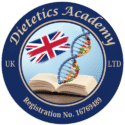Hospital Nutrition Diploma
Unit 1: Introduction to Hospital Nutrition
- Definition and importance of clinical nutrition in hospitals
- Difference between clinical and general nutrition
- Structure of the hospital nutrition department (Dietitian, Kitchen Supervisor, Clinical Nutritionist)
- Patients’ nutritional rights
- Coordination between doctor, dietitian, and nursing staff
- Types of hospital nutrition units (Inpatient, Outpatient, ICU, Oncology, Pediatrics)
Unit 2: Clinical Nutrition Assessment
- Steps of nutritional assessment
- Collecting dietary and medical history
- Anthropometric measurements (BMI, IBW, MUAC, etc.)
- Subjective Global Assessment (SGA)
- Clinical signs of malnutrition
- Biochemical assessment and lab indicators
Workshop: Patient case study and malnutrition grading.
Unit 3: Diet Planning in Hospitals
- Principles of therapeutic diet planning
- Calculation of calorie, protein, and fluid requirements
- Meal design based on medical condition
- Cooking and preparation methods in hospital settings
- Meal timing and daily distribution schedules
- Examples: Diet plans for Diabetic, Renal, Burn, and ICU patients
Unit 4: Enteral & Parenteral Nutrition
- Differences between oral, enteral, and parenteral feeding
- Types of enteral formulas
- Guidelines for tube feeding placement
- Possible complications and management
- Calculation of feeding rate and flow
- Total Parenteral Nutrition (TPN) composition and use
Practical Task: Calculate an ICU enteral feeding plan.
Unit 5: Hospital Food Service Management
- Stages of food preparation in hospitals
- Tray Line System and meal distribution
- Temperature and contamination control
- Applying HACCP standards in hospital kitchens
- Handling special therapeutic diets
- Coordination between kitchen and clinical nutrition units
Field Activity: Guided video or hospital kitchen visit.
Unit 6: Nutrition for Clinical Cases
- Nutrition for patients with:
- Diabetes
- Hypertension and Heart Disease
- Liver and Kidney Disorders
- Cancer
- Surgery and Burns
- Pediatrics and Infants
- Elderly Patients
- Allergies and food intolerance management
- Use of Oral Nutritional Supplements (ONS)
Unit 7: Documentation & Monitoring in Hospitals
- Writing the Nutrition Care Process report
- SOAP and ADIME documentation models
- Patient follow-up and progress evaluation
- Performance indicators in clinical nutrition
- Periodic reporting and audit documentation
Workshop: Write a real patient nutrition report.
Unit 8: Career Readiness in Clinical Nutrition
- Communication skills within medical teams
- Professional interaction with patients and families
- Professional dress code and ethics
- How to apply for clinical nutrition jobs (CV & interview skills)
- Training on JCI and WHO standards
- Graduation Project: Full patient nutrition plan (admission to discharge)
